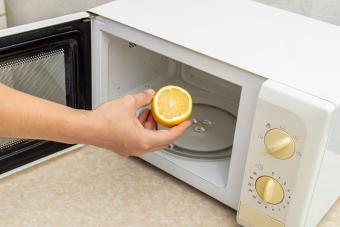
When it comes to how often you wash your sheets, frequency is important. Not only can dirty sheets lead to allergies, but skin problems as well. Find out how often you should change your sheets and what problems dirty sheets cause.
How Often Should You Wash Your Sheets?
When it comes to washing and changing your sheets, you want to do it about once a week. This is true for all different brands of sheets. However, this isn't a hard and fast rule. Many factors come into play when it comes to the washing of your sheets. For example, if you don't sleep on your mattress every day or shower before you go to bed, then you might be able to stretch how often you change your sheets to every two weeks. Other factors that might be able to elongate the changing of your sheets include:
- Wearing pajamas
- Sleeping in one position
- Not having pets in your bed
- Sleeping alone
What Might Lead to More Frequent Sheet Washing/Changing?
Just like there are factors that can extend the life of your sheets between washing, certain factors lead to the need for more frequent washing. For example, if you sleep naked or go to bed dirty, then you might want to consider changing your sheets every few days. Other factors include:
- Allergies
- Sleeping with pets
- Restless sleeper
- Drooling
- Skin problems (acne/eczema)
- Excessive sweating
- Eating in bed
- Season (washing sheets more in warmer months)

What Happens if You Don't Wash Your Sheets?
Now comes the big question, "why do you need to wash your sheets so much?" The short answer is they get gross fast. You might not realize it, but your sheets take a lot of abuse. Beyond your clothes, they probably come into contact with your skin the most. Would you wear the same outfit for 2 weeks straight? Probably not. Well, your sheets can get just as dirty as your clothing. Your sheets are teaming with dirt, skin cells, body oil, sweat, drool, and dust mites. And the more dead skin on your bed, the more dust mites, and their fecal matter you are laying in.
Problems From Not Washing Sheets
While you probably aren't going to get sick from letting your sheets go for a bit, the American Academy of Dermatology Association notes that your body is getting rid of 30,000 to 40,000 skin cells daily. That is an all-you-can-eat buffet for dust mites, which could lead to allergy outbreaks and skin outbreaks. Not washing your sheets frequently enough could also expose you to nasty bacteria and fungi.
How Often Should You Wash Your Pillowcase and Other Bedding?
Your bedding is kind of a package deal. Not only do you have sheets, but pillowcases, blankets, etc., that need to be taken care of. Typically, the same rules apply to all of your bedding when it comes to washing factors. But that doesn't mean all of your bedding needs to be cleaned and changed every one to two weeks. Check out the cleaning schedule for other bedding.
- Pillowcase - wash with sheets (1-2 weeks)
- Comforters and Blankets - 2-3 months
- Duvet covers - 2 months
- Pillows - 4-6 months
- Mattress - 6 months
Again, if you are an excessive sweater, drooler, or prone to allergies, you want to shorten the duration between cleanings of your bedding. No one wants to create a dust mite breeding ground.
The Importance of Washing Your Sheets
When it comes to changing and washing your sheets, most Americans aren't doing it enough. In fact, a Mattress Advisor survey of 1,000 people found that most people change their sheets about every three weeks. However, to keep the dust mites at bay, you might want to consider doing this weekly or taking a few precautions against a dust mite extravaganza. You also want to consider how you clean and sanitize your laundry when it comes to washing to clean your sheets properly. You can also strip your sheets to remove buildup that doesn't come out with regular washing.







